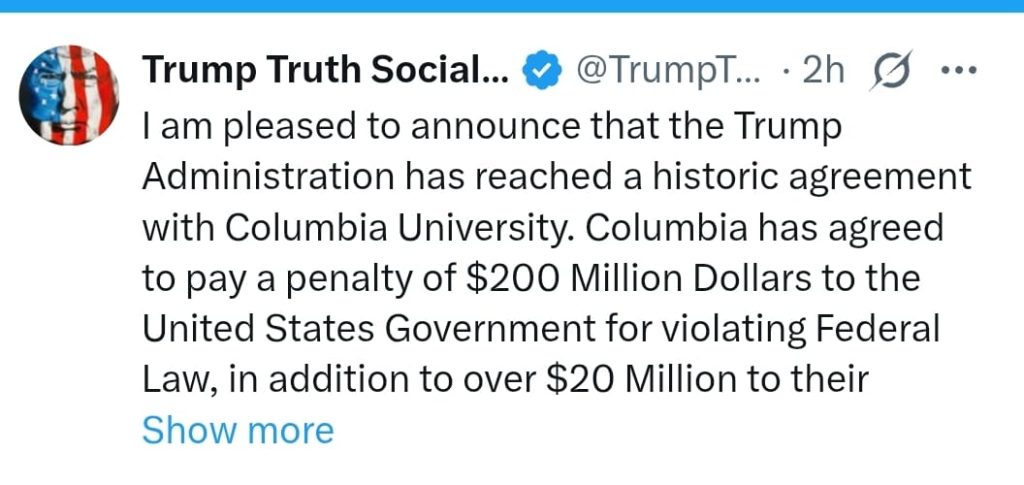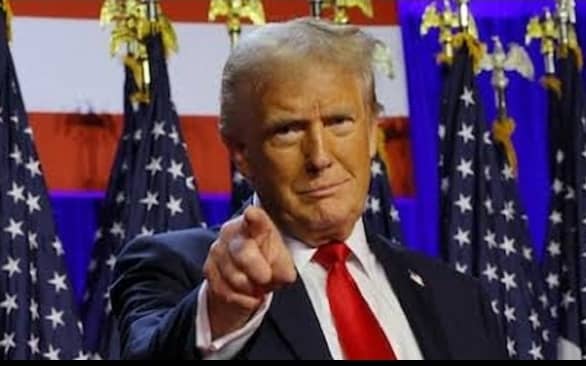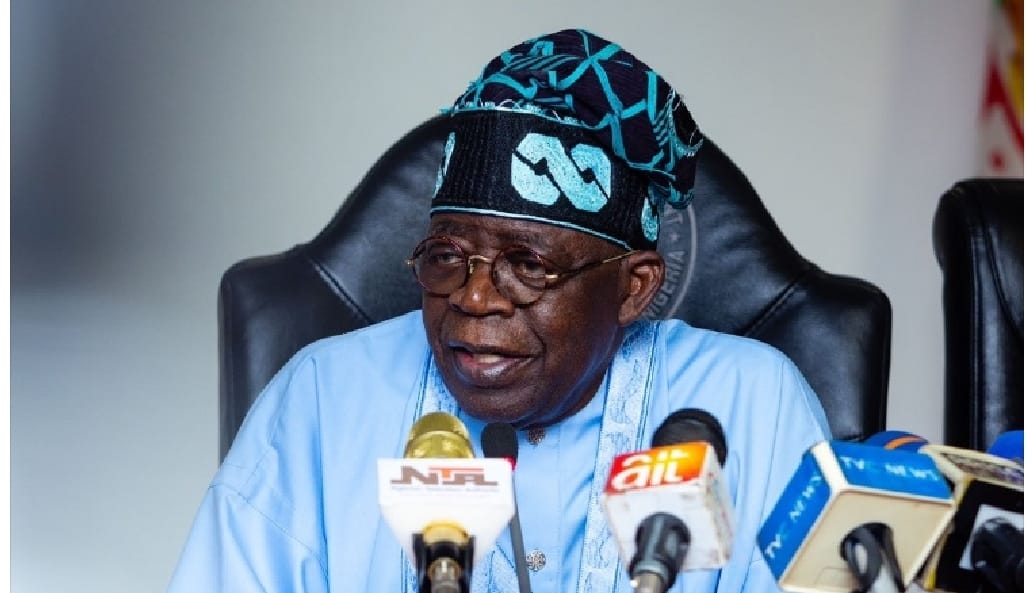In a major announcement on his ‘Trump Truth Social Posts On X’ (formerly Twitter) account, former President Donald Trump revealed that his administration has reached a “historic agreement” with Columbia University following alleged violations of federal law.
According to Trump’s post, Columbia agreed to pay a $200 million penalty to the U.S. government and a further $20 million in compensation to Jewish employees who were reportedly unlawfully targeted and harassed. The university is also said to have committed to abolishing its Diversity, Equity, and Inclusion (DEI) policies, pledging instead to admit students “based ONLY on MERIT” and protect the civil liberties of all students on campus.
“Columbia has also committed to ending their ridiculous Diversity, Equity, and Inclusion (DEI) policies, admitting students based ONLY on MERIT, and protecting the Civil Liberties of their students on campus,” Trump stated.
Trump praised the effort as a significant achievement, expressing his gratitude to Secretary Linda McMahon and others who collaborated with his administration. He also extended his thanks to Columbia University for “agreeing to do what he deems is right,” and conveyed optimism about the institution’s future in the United States.
He further hinted that other higher education institutions implicated in alleged Federal funding misuse may soon be held accountable for policies he described as “unfair and unjust.”
If confirmed, the settlement would represent one of the largest penalties ever levied against a university for federal law violations. The scale of the restitution to Jewish employees also marks a notable acknowledgment of purported workplace discrimination tied to Columbia’s policy enforcement.
Republicans and advocates for merit-based admissions have applauded the deal as a meaningful shift away from affirmative action and DEI initiatives. Meanwhile, critics warn that removing DEI can limit representation and miss opportunities to support historically marginalized students.
Columbia University representatives are expected to issue an official response later today. Key questions remain, including details of the federal law violations in question, the structure of the DEI changes, and the breadth of implementation across university departments.
The announcement reflects an ongoing national debate surrounding diversity policies in higher education, the federal government’s capacity for enforcement, and the balance between free speech and inclusivity on college campuses.
As more details emerge, this agreement is likely to spark further debate about federal influence over university policies and the future role of DEI in American higher education.

Credit: @TrumpTruthOnX








Leave a Reply